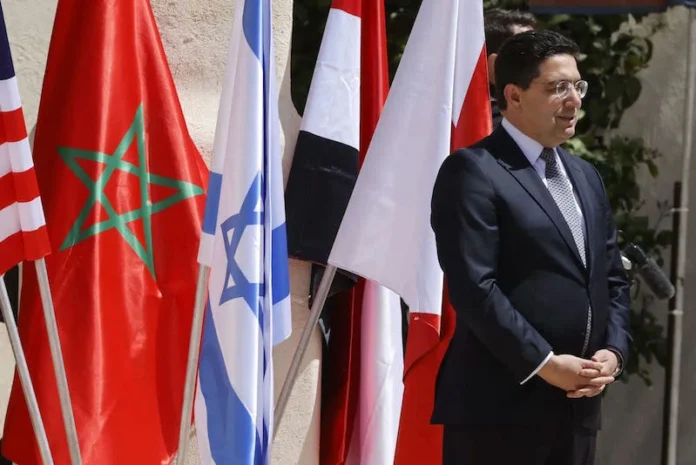The extraordinary Arab-Islamic summit held in Doha has opened a new debate on the future of relations between Israel and Arab states, particularly those bound by cooperation agreements or engaged in a process of political and economic normalization. The summit’s final communiqué reaffirmed the unity of destiny and collective security, declaring absolute solidarity with Qatar in the face of the Israeli attack on its territory, and condemning what it described as a “cowardly aggression” targeting a sovereign state, while rejecting any attempt to justify such an assault.
This context places Morocco before difficult and complex questions:
Will Morocco reconsider its relations with Israel? And can its chairmanship of the Al-Quds Committee—with all the symbolic and religious responsibilities it entails—intersect with its strategic calculations tied to the tripartite agreement with Washington and Tel Aviv?
Professor Khalid Chiyat, a specialist in international relations, argues that Morocco cannot sacrifice the tripartite agreement, as its strategic motivations remain valid and have even been reinforced by the progress the Kingdom has made on its foremost national issue: the Sahara question. He considers any talk of canceling normalization premature, given the absence of a unified Arab space capable of protecting collective values and defending common causes. For him, Morocco cannot be the victim of the Arab system’s shortcomings, nor can it risk strategic gains whose conditions have not changed.
On the other hand, Professor Abdelhafid El Younsi, a scholar of political science and international relations, offers a different perspective. He argues that the scale of Israel’s crimes—massacres, forced displacement, starvation in Gaza, and ongoing settlement and Judaization in the West Bank and Jerusalem—compels a serious reassessment of the Arab approach to dealing with this “rogue entity,” as he calls it. He stresses that Morocco, as chair of the Al-Quds Committee, is morally and politically obliged to take firmer stances, with the minimum being the suspension of diplomatic and economic relations with Israel. Yet, he acknowledges the difficulty of this option, given Morocco’s commitments under the Abraham Accords, particularly in light of U.S. support for the Sahara dossier.
Here, fundamental questions arise:
Can Morocco reconcile the preservation of its strategic position on the Sahara issue with the symbolic weight of its role as chair of the Al-Quds Committee?
To what extent could Israel’s aggression against Qatar exert pressure on normalized states, including Morocco, to reconsider their path?
And do Arab and Islamic peoples still trust the effectiveness of summits and solidarity statements at a time when states seem unable to forge a collective alternative to confront this challenge?
The Moroccan dilemma lies in balancing strategic pragmatism with symbolic and ethical commitment. And while Morocco has so far chosen to “hold the stick in the middle,” the accelerating events in Gaza and Doha—along with the possible expansion of the conflict to other Arab states—may sooner or later push it to recalibrate its positioning, through delicate balancing acts that safeguard its supreme interests while preserving its image as protector of Jerusalem and supporter of the Palestinian cause.




